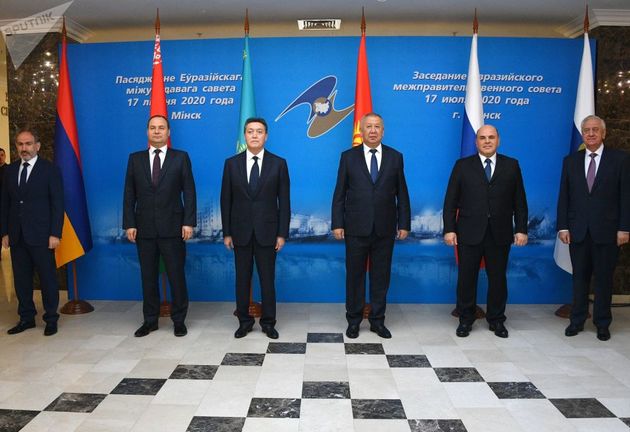Armenian Prime Minister Nikol Pashinyan unexpectedly sharply changed his attitude towards the two blocs formed in the post-Soviet space after the collapse of the USSR. Until recently, he did not hide his skepticism about Armenia's participation both in the economic bloc, the EAEU, and in the military-political bloc, the CSTO.
However, after a week ago, units of the Armenian armed forces, violating the ceasefire on the section of the Azerbaijani-Armenian state border in the Tovuz region, fired on Azerbaijani positions from artillery installations and received an adequate response from Azerbaijan, Pashinyan suddenly recalled allied relations.
First, Yerevan turned to the CSTO for help, but, naturally, did not receive support, and therefore decided to make a good face in a bad game: yesterday, the press secretary of the Armenian Foreign Ministry Anna Naghdalyan stated that Armenia "does not see the need to seek help from the CSTO in connection with escalation of the situation on the Armenian-Azerbaijani border "because he" controls the situation. "
An equally unexpected maneuver was the appearance of Nikol Pashinyan in Minsk, at a meeting of representatives of the EAEU. Recall that the Armenian Prime Minister refused to go to the Victory Parade in Moscow due to the difficult situation in the country with the coronavirus. Now the situation is even more complicated - COVID-19 is simply raging in Armenia. In addition, given the aggravation of the border conflict with Azerbaijan, it is generally strange for the Supreme Commander to leave the country. Nevertheless, something drew Pashinyan to Minsk.
In the capital of Belarus, the Armenian prime minister continued the tactics of political maneuvering. He insisted on the need for a peaceful settlement of the conflict with Azerbaijan, but at the same time told each vis-a-vis the "Armenian truth" about the situation on the border. A special calculation was, of course, for a meeting with Russian Prime Minister Mikhail Mishutin, through whom the Armenian Prime Minister tried to enlist the favor of the Russian leadership.
Meanwhile, experts saw in Pashinyan's appearance in Minsk an attempt by any means, if not to drag Russia into the conflict, then to achieve a demonstration of priorities. However, in principle, Moscow cannot take a pro-Armenian position, bearing in mind that the course of distance from Russia was taken precisely under Pashinyan, who came to power in the wake of US-backed protests and brought to power his associates, whose names are associated with the Soros Foundation. This is the ex-coordinator of the electoral programs of the organization Transparency International Armen Grigoryan, who was appointed to the post of head of the National Security Council, and the head of the State Control Service David Sanasaryan, ex-representative of the pro-Western Heritage party, headed by American Armenian Raffi Hovhannisyan, reminds Nezavisimaya Gazeta. ... Under Pashinyan, a criminal case was initiated against the South Caucasus Railways (the Armenian subsidiary of Russian Railways). According to local media outlets, Argishti Karamian, a young functionary who was recently appointed head of the National Security Service, could be behind the incident.
Experts agree that the situation on the Armenian-Azerbaijani border and attempts to force Moscow to take sides put Russia in an extremely uncomfortable position, and the more acute the situation is, the faster the Russian leadership will need to make a decision. However, it is quite obvious that Pashinyan's attempts to keep partners for fools are unlikely to find understanding both in Moscow and in other capitals of the CSTO and EAEU member states.






